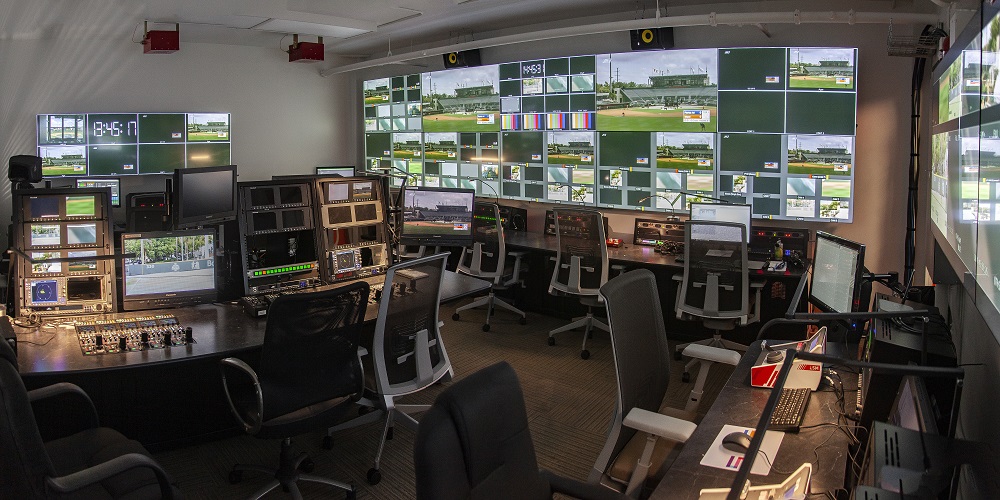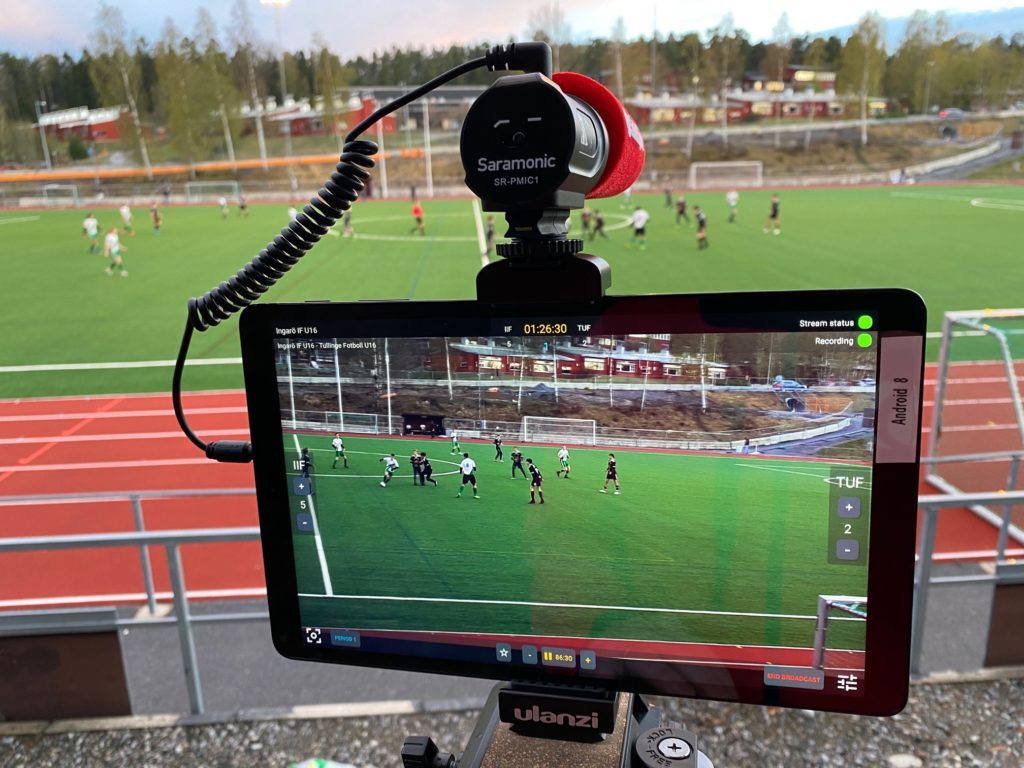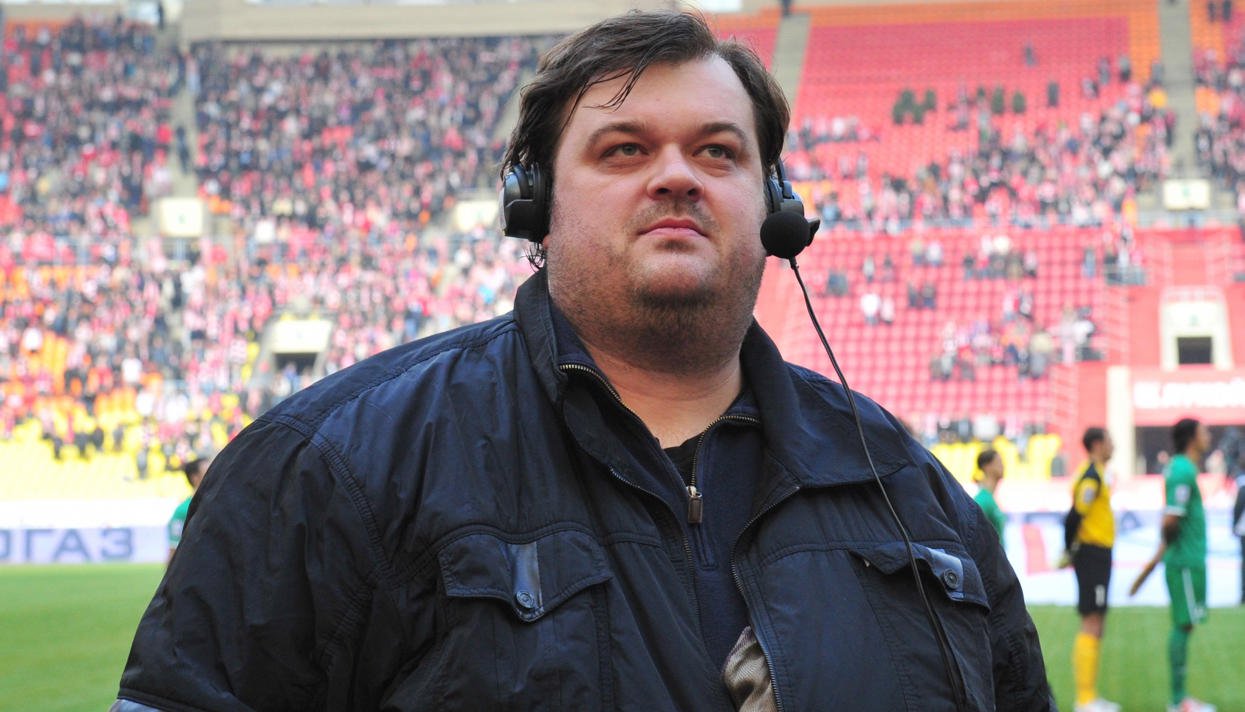Who makes sports broadcasts?
Continuing a series of articles on sports broadcasts: we will talk about people and their professions that participate in creating a sports broadcast.
Who makes sports broadcasts?
This article is a continuation of a series of publications on sports broadcasts. Let me remind you that we started with the history of sports broadcasts and talked about how the broadcasts of the matches of the World Cup in Russia were carried out, plus the article separately about football broadcasts from the emergence to 3D format. This article is an addition to the first three.
People who make sports broadcasts
In the age of prosperity of high technologies, few people think about how sports broadcasts are created, how a beautiful picture from conditional South America reaches the television receivers of those who are in Europe or Asia. On the example of a football match, we will tell about the intricacies and secrets of the work of those who help organize the broadcast of any sporting event.

In order for the broadcast to the broadcast, coordinated actions of a large number of specialists are needed, including operators, engineers, directors. It is thanks to them that the viewer has the opportunity to enjoy the scale of the event. Today, the process of creating a quality product resembles the shooting of a feature film.
Football battles are spectacular shows unfolding before the eyes of billions of spectators around the world, the culmination of which are grandiose tournaments like world or European championships. Who makes efforts so that everyone can join this holiday?
Director
It is his eyes that fans see everything that happens on the TV screen. The director’s task is the ability to show that the viewer will be interested. Needless to say that this process is akin to a creative event, if only for the reason that it is necessary to improvise every minute?
Judge for yourself – any violation that happened on the field, you need to not only show, but also fix its participants, as well as the reactions of coaches, players of the injured team, judges, especially the distinguished fans. Of course, with a goal scored by the viewer, it is more interesting to see the emotions of the mentor of the losing team. Thanks to these nuances, we can conclude that the broadcast becomes cinematic.
A professional never interferes with the game. If the events of the match develop in such a way that there is no time to repeat some kind of picture, he decides at what the least intense moment to do this. It also happens that when repeating, one of the teams manages to score a goal, in this case, the director of the broadcast will be responsible for unprofessionalism.
Operators
The responsibilities of these people include: the correct organization of the shooting process, as well as the coherence of actions with the director.If any football match was shown only from the central rostrum and from one camera without clear and timely repetitions, close – ups, no one would have watched it with such interest.
To carry out a high-quality broadcast, it is necessary to install 5-6 cameras around the entire perimeter of the stadium. If the arena is large and the event is large-scale, the number of such equipment can reach 20 units.

Direct broadcasting differs from what is recorded in that the team has practically no right to error. If in the second case the inappropriate picture can be cut during installation, then in the first this will not work. All flaws fans, located on the other side of the screen, will notice instantly.
How many cameras are installed at the stadium, so many operators work for them. On average, all the technique necessary for recording weighs about 20 kilograms. At the disposal of the operator is not only a camera, but also a control console, as well as switching. Each specialist receives a certain task before shooting. Paradoxically, having stood at the stadium for about two hours, the operator may not even find out what is happening on the field, if, for example, his task is to fix the emotions of fans or coaches.
Commentators

Today, this profession is incredibly popular. And contrary to popular belief, it is not as simple as it seems. In the commentary environment, a huge competition, it is not so easy to become a professional. For example, in our country they are no more than 30 people. Sports events are almost the only large -scale events that require direct broadcasts. Accordingly, a high -class commentator needs to not only perfectly speak the impeccable Russian language, but also have a flexible mind, as well as be an expert on his sport, his history. And most importantly, to be able to remember the viewer, to develop your own narrative style, to earn a reputation.
In former times, the role of the commentator was invaluable. Today, thanks to the presence of video replacements, understandable graphic visualization, the viewer receives the information that only a person from a microphone could convey before him. Technologies do not stand still, professions are changing, over time, the tasks of commentators are also transformed.
What else can affect the quality of the picture displayed on the screen
In addition to the operator, directorial, commentary work on the quality of the broadcast, the technical condition of the lawn, stands, lighting devices, as well as the number of fans present at the stadium. Even in the presence of expensive technology and a super-professional team, it is impossible to organize a decent shooting in a little one, if you lead it from a site similar to the Vityaz stadium, in Vologda, or Dynamo in Barnaul.
However, there is good news – every year a decent number of new sports complexes appear in our country. Last year, all of Russia, thanks to the World Cup, saw how well the state can prepare for holding such large-scale tournaments. Modern sports arenas equipped to high technical standards were built in Saransk, Nizhny Novgorod, Sochi, Volgograd, Kaliningrad and other cities.
After the last World Cup, some sites are being built in accordance with the tasks of the TV people. At preliminary conferences and meetings, they discuss which boxes to organize to make it easier to install cameras and lighting devices.
Problems that have to be solved, including TV people
However, low attendance at sporting events remains a global problem. Of course, at such large-scale tournaments as the World Championship or the Confederations Cup, this almost never arises with this difficulty, but when holding matches within the framework of the Russian championship, it is difficult to achieve a 100% result. This is connected, of course, not only with the ineffective propaganda of domestic sports. By the way, in such situations, TV people will need to be able to quickly navigate – to create such a visualization so that half of the screen is not empty.
It is interesting that in Spain such problems are solved in a radical way. The regulations of this or that tournament prescribe a special provision, according to which the teams must take care of the filling of the stands by 75%. Otherwise, the club runs the risk of receiving an impressive fine (more than 5,000 euros). Operators should also not show half-empty stands.
Of course, to be present at the match of your favorite team live is a great success, but the viewers have a visual advantage over the fans at the stadium. They have the opportunity to review replays from different angles, get reliable information from competent analysts, commentators, and sports experts.



